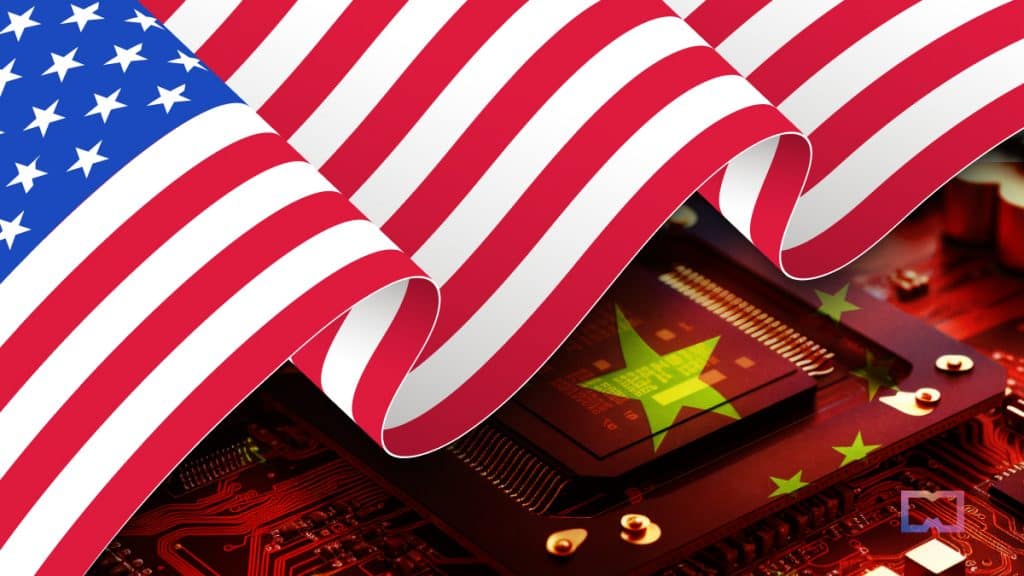U.S. Enforces Regulations to Protect $52 Billion AI Chip Funding Benefitting China


In Brief
The new chip regulations prohibite recipients of U.S. funding from investing in the expansion of semiconductor manufacturing in countries of concern, such as China and Russia.

The U.S. Commerce Department, in a significant move to bolster national security, has formally adopted regulations designed to thwart attempts by China and other nations perceived as posing American national security threats from capitalizing on semiconductor manufacturing subsidies.
As per a Reuters report, the development marks the final procedural step before the Biden administration can commence the allocation of $39 billion in subsidies for semiconductor production, as part of the “Chips and Science” law, which earmarks a staggering $52.7 billion to fortify the U.S. semiconductor industry, promote research and enhance workforce capabilities.
The regulations, initially proposed in March, serve as a set of stringent “guardrails,” explicitly prohibiting recipients of U.S. funding from investing in the expansion of semiconductor manufacturing in countries of concern, such as China and Russia.
Moreover, they restrict beneficiaries of incentive funds from participating in collaborative research or technology licensing initiatives with foreign entities from these nations.
The latest development follows the Department’s October 2022 imposition of export controls intended to sever China’s access to specific semiconductor chips manufactured using U.S. equipment, a strategic maneuver aimed at impeding Beijing’s technological and military advancements.
Commerce Secretary Gina Raimondo emphasized the necessity of rigorous oversight, stating, “We have to be absolutely vigilant that not a penny of this helps China to get ahead of us.” She made these remarks during her congressional testimony on Tuesday.
The regulations empower the Commerce Department to recover federal awards if recipients are found to be in violation of the stipulated restrictions.
Raimondo underscored her commitment to expeditiously approve awards while emphasizing the importance of precision in the process, stating, “I feel the pressure. We are behind, but it is more important that we get it right. And if we take another month or a few more weeks to get it right, I will defend that because it’s necessary.”
Implications of New Chip Regulations
Under the finalized rules, funding recipients are prohibited from significantly expanding semiconductor manufacturing capacity in countries of concern for a period of ten years. Concurrently, they are restrained from engaging in certain joint research or technology licensing ventures with foreign entities of concern, although allowances are made for compliance with international standards, patent licensing, and the utilization of foundry and packaging services.
The regulations also explicitly prohibit substantial expansion of semiconductor manufacturing capacity, particularly for advanced facilities, in countries deemed as national security concerns. This expansion is defined as increasing production capacity by more than 5%. Furthermore, recipients are barred from introducing new cleanroom space or production lines that would lead to an expansion of production capacity beyond the 10% threshold.
Additionally, the regulations classify certain semiconductors as critical to national security, thereby triggering more stringent restrictions. These include semiconductors used in quantum computing, current-generation and mature-node chips, those deployed in radiation-intensive environments, and those catering to other specialized military applications.
The new regulations underscore the United States’ resolve to safeguard its semiconductor industry from potential adversaries while ensuring the responsible allocation of substantial funding to support domestic chip production and innovation.
Disclaimer
In line with the Trust Project guidelines, please note that the information provided on this page is not intended to be and should not be interpreted as legal, tax, investment, financial, or any other form of advice. It is important to only invest what you can afford to lose and to seek independent financial advice if you have any doubts. For further information, we suggest referring to the terms and conditions as well as the help and support pages provided by the issuer or advertiser. MetaversePost is committed to accurate, unbiased reporting, but market conditions are subject to change without notice.
About The Author
Victor is a Managing Tech Editor/Writer at Metaverse Post and covers artificial intelligence, crypto, data science, metaverse and cybersecurity within the enterprise realm. He boasts half a decade of media and AI experience working at well-known media outlets such as VentureBeat, DatatechVibe and Analytics India Magazine. Being a Media Mentor at prestigious universities including the Oxford and USC and with a Master's degree in data science and analytics, Victor is deeply committed to staying abreast of emerging trends. He offers readers the latest and most insightful narratives from the Tech and Web3 landscape.
More articles

Victor is a Managing Tech Editor/Writer at Metaverse Post and covers artificial intelligence, crypto, data science, metaverse and cybersecurity within the enterprise realm. He boasts half a decade of media and AI experience working at well-known media outlets such as VentureBeat, DatatechVibe and Analytics India Magazine. Being a Media Mentor at prestigious universities including the Oxford and USC and with a Master's degree in data science and analytics, Victor is deeply committed to staying abreast of emerging trends. He offers readers the latest and most insightful narratives from the Tech and Web3 landscape.





















































